Posted by: Ken @ 9:47 pm
The sun had not yet crept above the horizon when we set out on the gravel road that leads into the wetlands next to our South Florida home. Mary Lou set a fast pace as usual, and again I fell behind. In her haste she walked right by an abandoned power pole along the road without seeing something interesting. Probably I saw it because the first rays were just hitting as I approached the pole. It was an immature Bald Eagle. I called her cell phone, but by the time she answered the eagle had flown away.
I also stopped to see whether any Bobcats were prowling on the levee. Finding none, I turned back towards the road and captured the rising sun with my compact point-and-shoot Canon PowerShot A1100 IS. The photo turned out very poorly, as the sky was over-exposed and the foreground was almost black. I tried to salvage the photo by using HDR software and got surreal results.
A Northern Cardinal perched in the high grass along the lake.
Common Ground-Doves foraged in the path near the heron rookery. They were quite timid, so I could only get a distant view.
The rookery is situated along the opposite (east) side of a canal. There have been as many as six adult and two immature Yellow-crowned Night-Herons roosting and displaying there this past week. This morning I found five adults, plus a pair of courting Green Herons. I was disappointed to see that maintenance crews from the South Florida Water Management District had applied herbicide to the vegetation along the bank of the canal.
Note the well-demarcated line of brown and denuded branches along the water line. The dead and dying trees are mostly exotic and invasive Brazilian Pepper which crowd out native trees. Most of last year’s heron nests were well-hidden in these trees, usually over the water. In these photos two herons can be seen at one of last season’s nest sites, well within the herbicide-treated zone.
The herons have already been carrying sticks to their old nest sites. Unless the trees recover, their nests and young will be totally exposed. I wonder whether they may now abandon the site.
Unaware of the problem, the herons continued to carry out their courtship rituals, this one on the remains of last year’s nest.
Note the bright red legs of the male heron.
This could be interpreted as a disagreement, but birds cannot change their facial expressions.
It looks as if they have now reconciled their differences!
Time to tend to the plumes.
Here is one of the Green Herons.
I hesitated about posting information about this rookery, discovered last spring by my neighbor, Scott. There is danger of unnecessary intrusion. Yet almost every evening and all weekend there are “recreational” motorists on ATVs and dirt bikes roaring along the west side of the canal, exactly where I stood to take these photos, only about 30 yards away from the rookery. Sure enough, a few birders contacted me and I guided them to see the herons.
One visitor this week was Steven Siegel, who was a consultant and videographer for the movie “The Big Year.” (Coincidentally, Mary Lou and I had just viewed the DVD the night before, and I did not learn of Steve’s involvement until after I met him. By the way, we really enjoyed the movie, accepting the fact that it is a comedy that must be taken with the proverbial grain of salt.) You may view an interesting and informative interview with Steven Siegel here: The Z Bird Birding Blog Interview with Steven Siegel, “The Big Year” Videographer







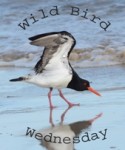





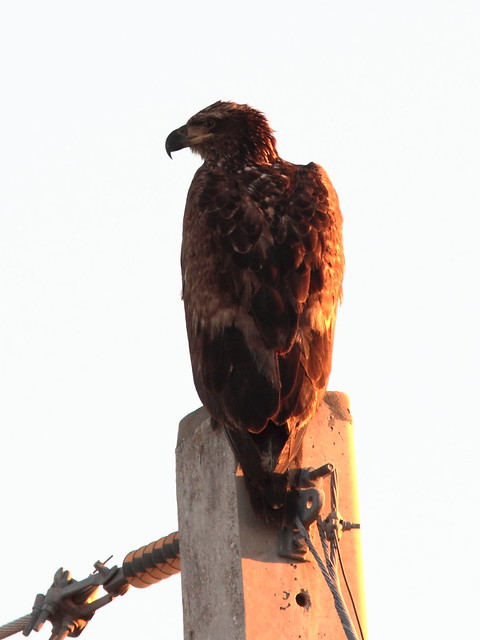
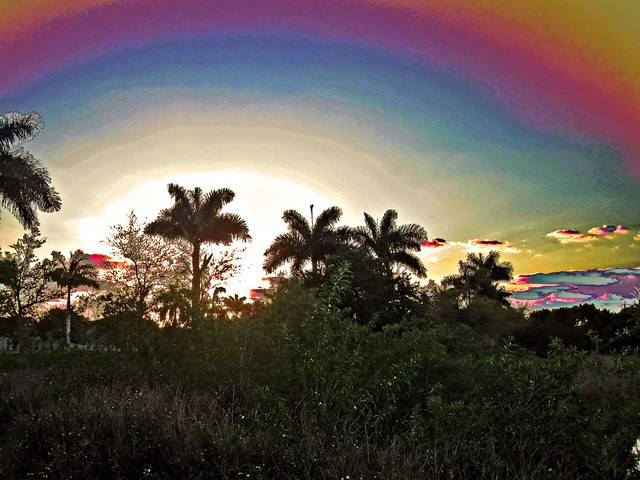

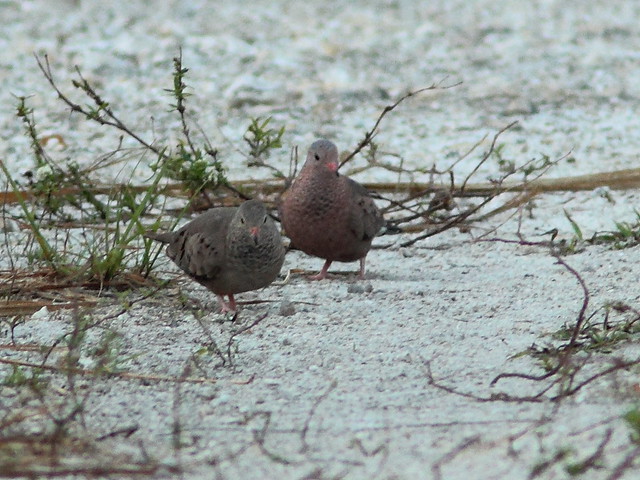
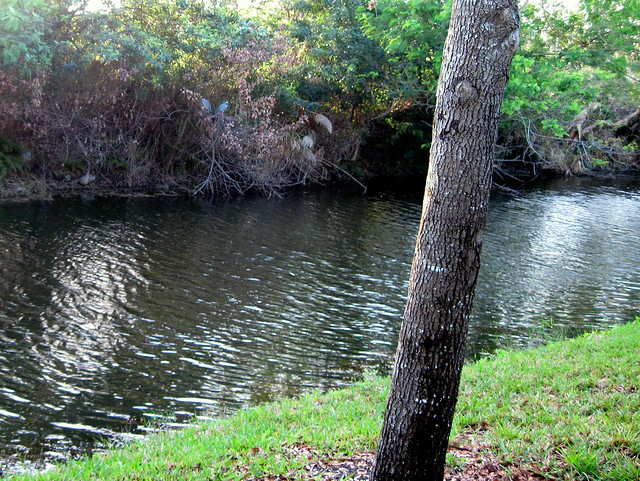

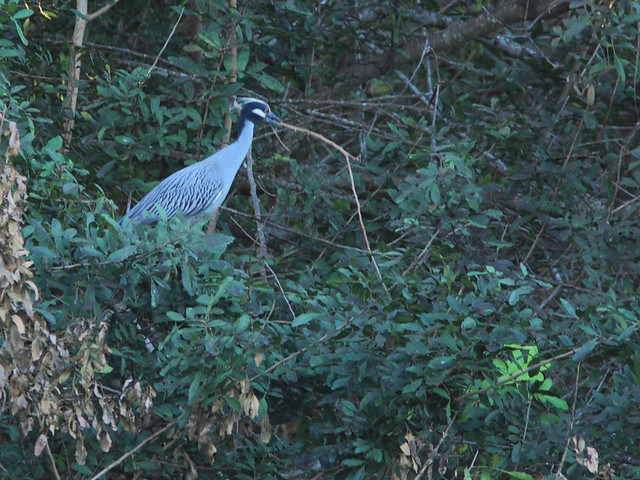
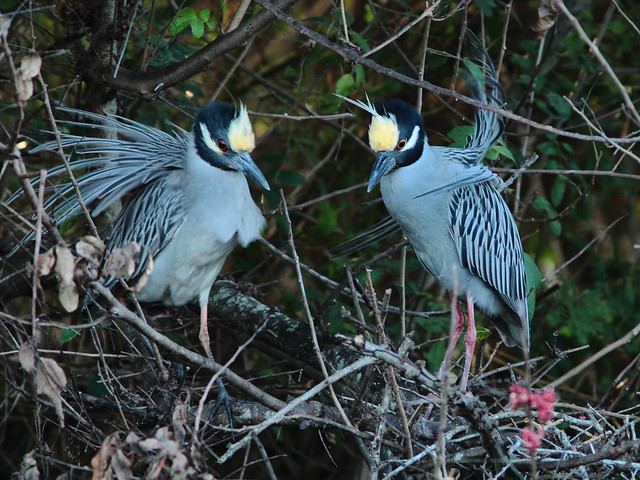
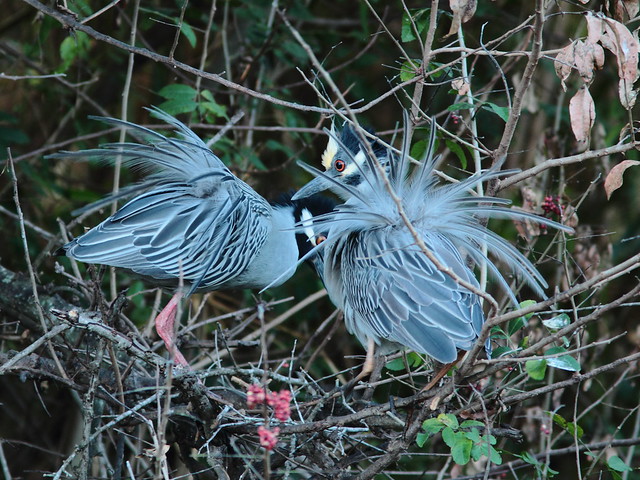
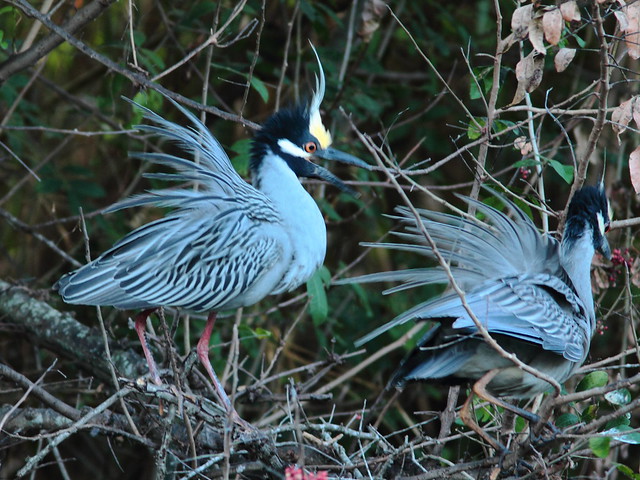
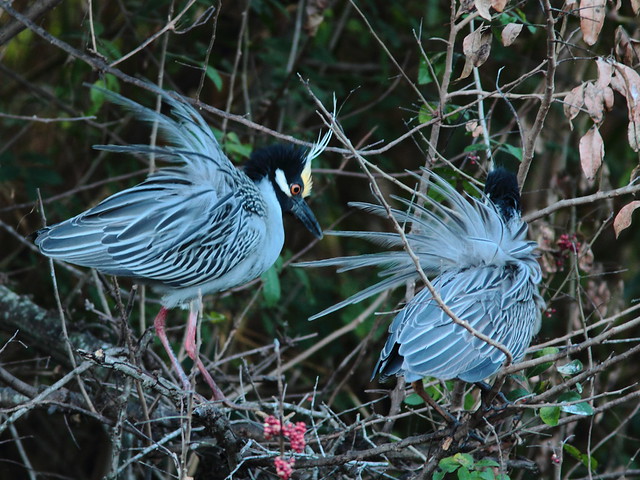
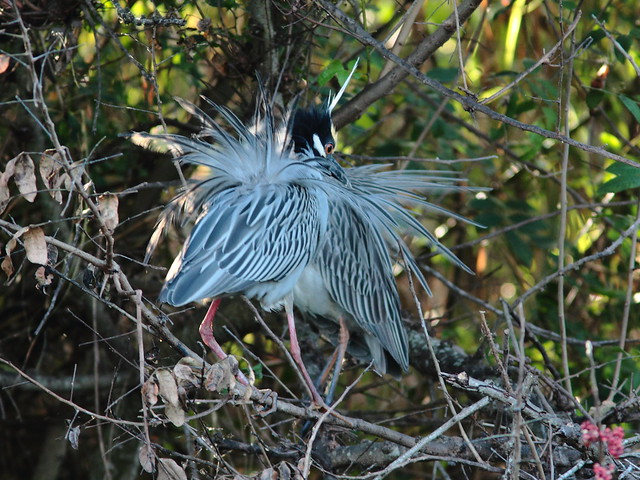
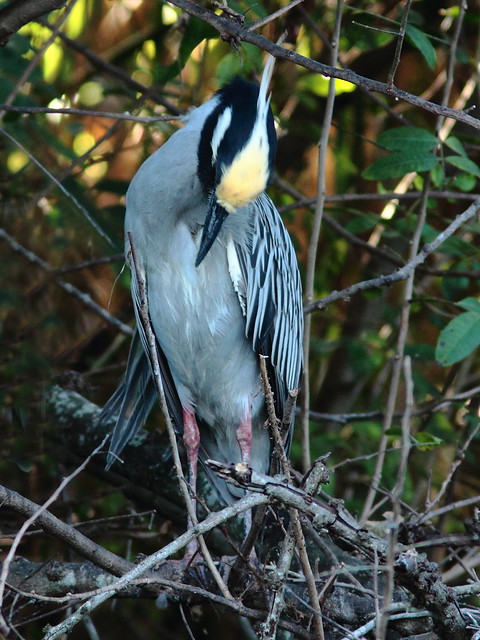
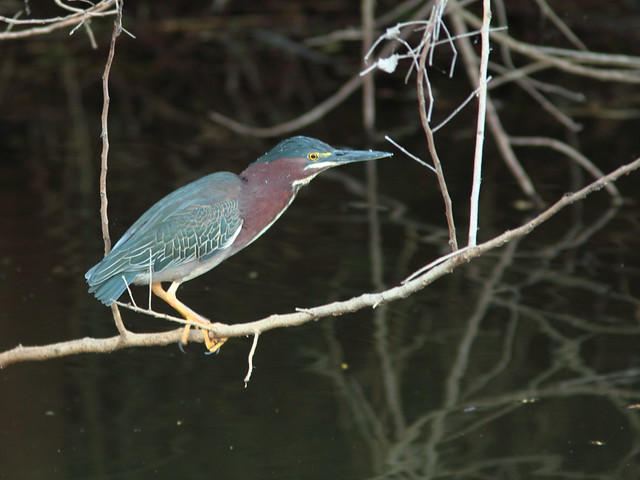
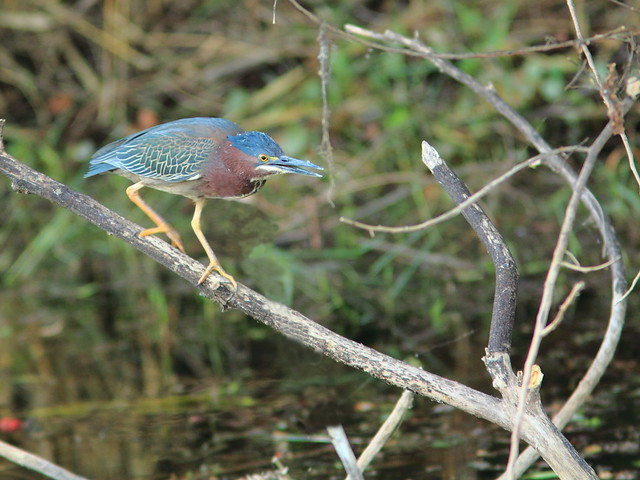
March 13th, 2012 at 2:11 pm you got some great shots of the night herons and green, too! and that immature eagle is so regal.
March 13th, 2012 at 2:28 pm Great hike and love the herons!! Boom & Gary of the Vermilon River, Canada.
March 13th, 2012 at 3:13 pm Great pictures. It sounds like you two hike like my wife and I do. She does it fast to get exercise and I do it slow to see things. She usually picks me up on the way back to the vehicle. We both enjoy our two and a half minutes together hiking.
March 13th, 2012 at 4:04 pm Great photos of all the birds and very interesting about the spraying along the canal. Won’t the exotic species just grow back in unless there is an effort to control them all?
March 13th, 2012 at 4:19 pm Super series of images of the Herons.
March 13th, 2012 at 5:02 pm Beautiful birds and your photos, too. Regards and best wishes
March 13th, 2012 at 6:25 pm Wonderful post and great birds. My favorite are the YC Night heron and the Green heron. It is amazing how close some of these rookeries are to roads, parks and a lot of people. Maybe they do not mind?
March 14th, 2012 at 12:49 pm These are such incredible pictures of such gorgeous birds…. I have to go back for another look…..
March 14th, 2012 at 1:52 pm These herons are awesome!
March 14th, 2012 at 8:47 pm Love your experimentation with psychedelic landscapes! Your heron shots are nothing short of mind bending as well. I think that unfortunately all the herbicide on the planet is not going to stop the Brazilian Pepper from taking hold. The birds seem to love it for nest making. Go figure.
March 14th, 2012 at 10:43 pm I love the shots of the herons displaying those beautiful plumes!
March 16th, 2012 at 8:39 am You have some amazing photos! My favourites on this page are the cardinal in this post, and the great blue herons further down the page - the evening shot of the bird standing on the Canada goose float, and the one with the mosquito on his chin!!!
April 12th, 2012 at 1:32 pm Thank you all for your generous comments. I agree that the campaign to eradicate the Brazilian Pepper is an exercise in futility, akin to those to kill all the fire ants in Texas and all the Purple Swamphens in Florida. In the case of the canals, there is the need to inspect and sometimes repair the canal banks, which can deteriorate and constitute a flood or sinkhole hazard. The herbicide is applied rather non-selectively along the banks and also on floating vegetation. I share concerns about human disturbance. These nests are actually in peoples’ back yards, but the trees and bushes are left there because they shield homeowners of the power sub-station eyesore. I also worry about kids throwing rocks at the nests in the treated trees, as they are now in plain sight. I will be watching as closely as possible.